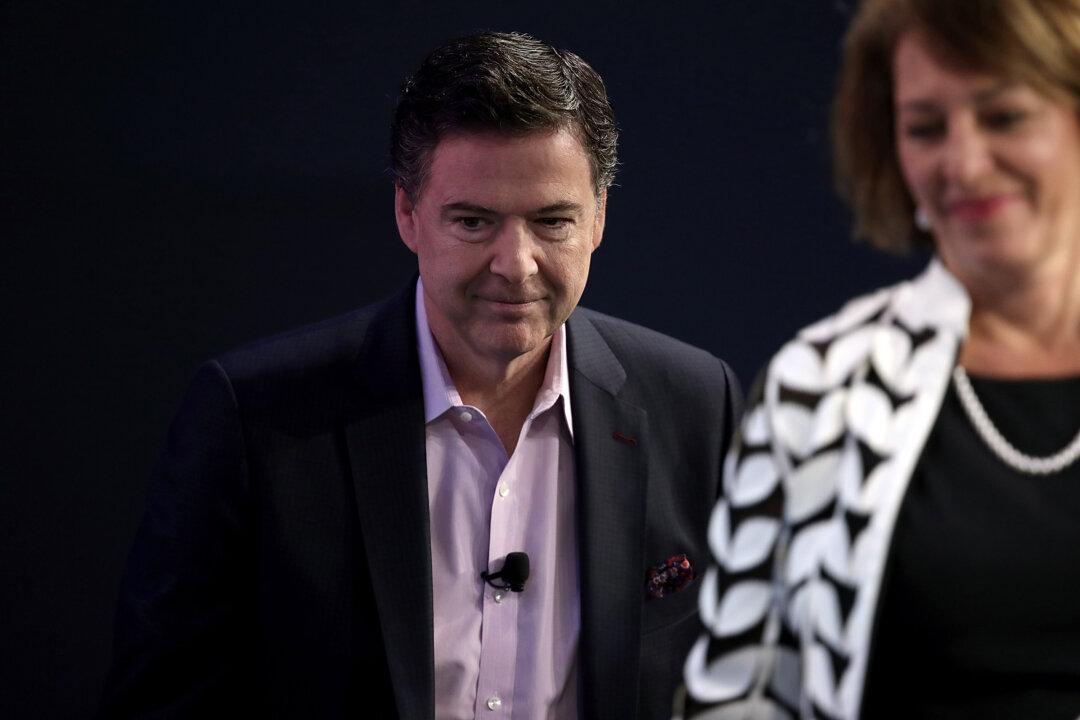A crucial email string sent by top FBI and Justice Department (DOJ) officials in late 2016 is expected to become the subject of some of the most difficult queries for former FBI Director James Comey on Capitol Hill on Dec. 7, as he faces Republican lawmakers in a private interview.
Comey and former Attorney General Loretta Lynch are the last witnesses to be interviewed by the joint task force of House lawmakers as they conclude a year-long investigation, which has uncovered potential abuses of government surveillance against the Trump campaign, among other issues.





